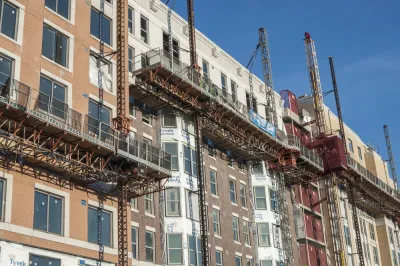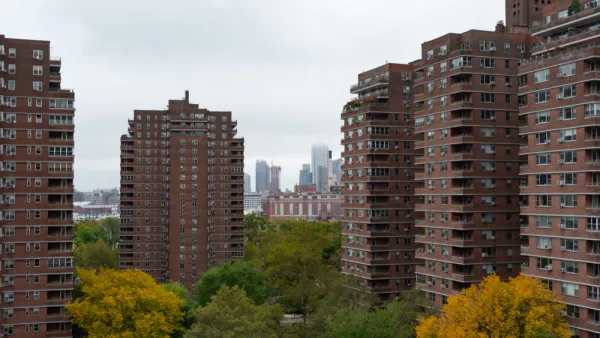District council members and local tenant advocates are engaged in a bit of tug of war about how far the District should go to limit the amount landlords can raise rents.

Ally Schweitzer reports on the ongoing debate about rent control in the nation's capital:
Tenant advocates have been pushing to overhaul rent control in D.C. for about a year. But over more than nine hours of public testimony Thursday, it became clear that those advocates do not like most rent control legislation the D.C. Council has offered so far.
Tenant advocates are asking for the rent control system already in place for about 90,000 units to remove exceptions that have allowed some landlords to shed the tenant protections. The erosion of rent control has greatly contributed to the displacement of Black communities, according to a soundbite from Victoria Gonçalvez, a tenant organizer with the Latino Economic Development Center, in the article.
D.C. Council housing committee chair Anita Bonds (D-At Large) has proposed five bills intended to shore up rent control in the District. Here's how Schweitzer describes those bills:
Two of the bills discussed Thursday would impose new limits on landlords seeking rent increases to pay for improvements to their properties. Another would partially restrict the controversial practice of rent concessions, another way property owners can raise rents beyond the legal limit. A fourth bill would impose a two-year moratorium on what are known as voluntary agreements, which are intended to help landlords negotiate rent increases with tenants in exchange for renovations, but at some buildings have been used to slowly wipe out rent control. The most drastic measure — supported by a majority of the Council and some landlord representatives — would limit rent-controlled housing to lower-income residents.
In response, tenant organizations, cited by name in the source article, are calling for "sweeping set of reforms that would apply rent control to thousands more apartments and further limit how much landlords can raise rent each year, among other changes," according to Schweitzer.
FULL STORY: At Hearing, D.C. Landlords And Tenant Advocates Poke Holes In Proposals To Tweak Rent Control

Analysis: Cybertruck Fatality Rate Far Exceeds That of Ford Pinto
The Tesla Cybertruck was recalled seven times last year.

National Parks Layoffs Will Cause Communities to Lose Billions
Thousands of essential park workers were laid off this week, just before the busy spring break season.

Retro-silient?: America’s First “Eco-burb,” The Woodlands Turns 50
A master-planned community north of Houston offers lessons on green infrastructure and resilient design, but falls short of its founder’s lofty affordability and walkability goals.

Test News Post 1
This is a summary

Analysis: Cybertruck Fatality Rate Far Exceeds That of Ford Pinto
The Tesla Cybertruck was recalled seven times last year.

Test News Headline 46
Test for the image on the front page.
Urban Design for Planners 1: Software Tools
This six-course series explores essential urban design concepts using open source software and equips planners with the tools they need to participate fully in the urban design process.
Planning for Universal Design
Learn the tools for implementing Universal Design in planning regulations.
EMC Planning Group, Inc.
Planetizen
Planetizen
Mpact (formerly Rail~Volution)
Great Falls Development Authority, Inc.
HUDs Office of Policy Development and Research
NYU Wagner Graduate School of Public Service




























